Professional Courses
Industry-relevant training in Business, Technology, and Design
Categories
Interactive Games
Fun games to boost memory, math, typing, and English skills
Typing
Memory
Math
English Adventures
Knowledge
JEE Main Attempts After 12th: A Guide for Students
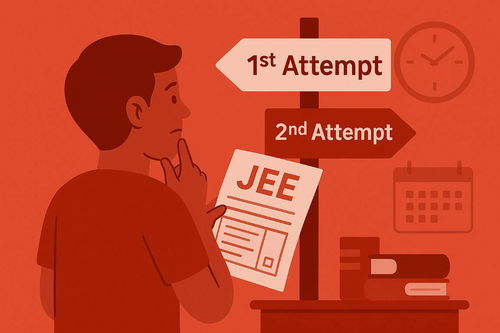
If you’re a student who has recently completed Class 12 or is planning to appear for the JEE Main exam, one of the most important things you need to understand is the number of attempts you get after Class 12. The JEE Main attempts after 12th play a big role in how you plan your preparation, when you should take a drop year, and how you should pace yourself.
In this complete guide, we’ll walk you through the official attempt rules, year-wise eligibility, and smart preparation strategies. Whether you’re planning to appear this year or considering a gap year, this article will help you make informed choices.
What Is the JEE Main Exam?
Let’s begin by understanding what JEE Main really is. It’s a national-level engineering entrance exam conducted by the National Testing Agency (NTA). Students who qualify JEE Main can seek admission into top engineering institutions such as:
- National Institutes of Technology (NITs)
- Indian Institutes of Information Technology (IIITs)
- Centrally Funded Technical Institutions (CFTIs)
- Some private colleges and state government colleges also accept JEE Main scores
Additionally, your JEE Main score is required to appear for JEE Advanced, which is the entrance exam for IITs. This makes JEE Main the most important exam for aspiring engineers in India.
You can access full preparation resources, notes, and practice questions for JEE on AllRounder.ai’s JEE Main section.
How Many Times Can You Attempt JEE Main?
According to the NTA’s official guidelines, a student can attempt JEE Main for three consecutive years starting from the year of passing Class 12. Since the exam is conducted twice a year, usually in January and April so you get a total of six attempts across three years.
Let’s say you passed your Class 12 exam in 2024. You will then be eligible to appear for:
- JEE Main 2024 (both January and April)
- JEE Main 2025 (both January and April)
- JEE Main 2026 (both January and April)
This means you have six chances to perform your best, either in the same year or by spreading them out across multiple years. This policy gives students more flexibility and reduces the pressure of performing perfectly in a single attempt.
Is It Necessary to Appear in All Attempts?
Not at all. You don’t have to appear in all six attempts. You can choose how many attempts you want to take based on your preparation and confidence. Some students appear only once per year, while others appear in both sessions.
For example, you can take the April session only if you feel you need more time to prepare after the board exams. Or you can take both sessions to improve your score. NTA will consider the best score among all your attempts for ranking and eligibility.
How Attempt Policy Helps Students
The current attempt policy was introduced to reduce exam anxiety. Earlier, students had just one or two chances to prove themselves. Now, you get multiple chances each year. This helps in many ways:
- If you fall sick or face an emergency during one session, you can try again in the next
- You can treat your first attempt as practice and then improve your score
- If you don’t get your desired branch or college, you can take a drop year and reappear
This also helps you adjust your strategy and study plan based on your real-time performance. Smart platforms like AllRounder.ai offer detailed feedback, mock tests, and AI-generated insights to help you improve after each attempt.
Year-Wise Eligibility Based on 12th Passing Year
Your eligibility to appear in JEE Main is directly linked to the year you passed Class 12 or equivalent. Let’s break this down:
- If you are appearing for JEE Main in 2025, you must have passed Class 12 in 2023, 2024, or be appearing in 2025
- If you passed Class 12 before 2023, you are not eligible to appear in JEE Main 2025
This is why understanding the number of JEE Main attempts after 12th is so important. It helps you plan whether you should attempt this year, next year, or both.
What If You Want to Take a Drop Year?
Many students choose to take a drop year after Class 12 to prepare more seriously for JEE Main. The good news is that this is completely allowed under the attempt policy.
If you passed Class 12 in 2024, you can skip JEE Main that year and prepare for 2025. You’ll still have two more years to appear.
In fact, many toppers have taken a gap year to sharpen their concepts, revise thoroughly, and come back stronger. But dropping a year requires a solid plan. You must stay focused, disciplined, and consistent.
Platforms like AllRounder.ai can support you during your drop year with a structured daily schedule, topic-wise practice tests, mock exams, and AI-powered feedback to improve your accuracy.
Does the Number of Attempts Affect Admission?
Yes and no.
The number of attempts does not directly affect your admission, but your best score certainly does. Colleges like NITs, IIITs, and CFTIs consider your best JEE Main score for admission. This means even if you score poorly in January, a better score in April will be considered.
However, to be eligible for admission, you must also fulfil the following conditions:
- You must be within the top 2.5 lakh JEE Main scorers if you wish to appear for JEE Advanced
- You must have at least 75% in your Class 12 boards (or top 20 percentile) for admission to NITs, IIITs, and CFTIs
- SC, ST, and PwD candidates need only 65% marks
So, while the number of attempts is flexible, your final performance and board percentage are what matter most.
How to Plan Your JEE Main Attempts After 12th
Now that you know you can take six attempts, the real question is: How should you plan your attempts?
Here are some tips:
1. Use the First Attempt as a Benchmark
Don’t stress too much about the January session. Use it as a way to understand the paper pattern and identify your weak areas.
2. Review and Improve
After your first attempt, use detailed performance analysis to understand which topics need improvement. AllRounder.ai gives you personalized insights on time management, accuracy, and topic-level progress.
3. Go All In for the Second Attempt
Use the gap between January and April to revise and practice. Work on mock tests, past year papers, and speed-solving. The April attempt often gives students a big score jump.
4. Evaluate Whether to Take a Drop
If you miss out on your target college or branch, consider taking a drop only if you’re sure you can commit to a full year of disciplined preparation. Use platforms like AllRounder.ai for guided study during your drop year.
Is There a Limit on How Many Times You Can Appear for JEE Advanced?
Yes, there is.
You can appear for JEE Advanced only twice in two consecutive years, and there is an age limit as well. You must be born on or after October 1, 2000, for the general category (with a 5-year relaxation for SC/ST/PwD).
This means that even if JEE Main allows six attempts, you must be aware of JEE Advanced attempt restrictions if your goal is to get into an IIT.
What If You Are a Diploma Holder?
If you completed a diploma instead of Class 12, you can appear for JEE Main, but you won’t be eligible for admission to NITs and IIITs. However, you can still appear for JEE Advanced, and if you qualify, you may get into IITs. But make sure you check all eligibility conditions.
Common Mistakes to Avoid
1. Ignoring the Attempt Timeline
Some students mistakenly believe that attempts are unlimited. But if you miss the three-year window after 12th, you lose your chance.
2. Not Improving Between Attempts
Repeating the same mistakes won’t improve your score. Use each attempt as an opportunity to get better with the help of tools on AllRounder.ai.
3. Panic During First Attempt
Don’t treat your first attempt as your only chance. Even top scorers often perform better in later sessions. Stay calm and focused.
4. Poor Time Management
Divide your syllabus wisely. Give enough time for revision and mock tests. You can follow smart study planners and daily tasks using AllRounder.ai’s AI-driven preparation schedule.
Final Thoughts
The JEE Main attempts after 12th give you the power to plan your future better. You don’t have to rush. You get three full years of opportunities and six total attempts. Use them wisely.
- Focus on understanding concepts, not just cramming formulas
- Treat each attempt as a stepping stone
- Make use of smart study tools, mock tests, and personalized feedback from platforms like AllRounder.ai
Whether you want to make your first attempt your best or plan to come back stronger after a drop year, remember that your journey is your own. Stay focused, stay curious, and keep learning.
You are capable of reaching your goals. The JEE Main is tough, but with the right mindset and preparation, you can absolutely succeed.

Learn how negative marking works in JEE Main 2025 and how to avoid it with practical, proven strategies.

Learn how to prepare for JEE Main 2025 with a proven, winning strategy. Get a detailed plan, subject-wise tips, and...

Learn the chapter-wise weightage for JEE Main 2025 across Physics, Chemistry, and Maths. Prioritise smartly and...

Discover the most important chapters for JEE Main 2025 across Physics, Chemistry, and Maths. Focus your prep smartly...

Discover top JEE Main books for Physics, Chemistry & Maths. Learn how NCERT & reference books pair with AllRounder.
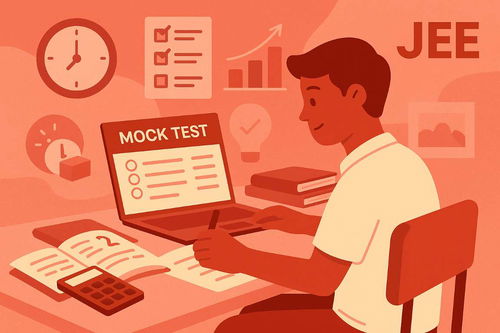
Looking for free JEE Main mock tests to boost your preparation? Discover the best platforms, tips, and strategies to...

Discover what scores and percentiles are needed to secure seats in top NITs, IIITs, and GFTIs. Learn how category...
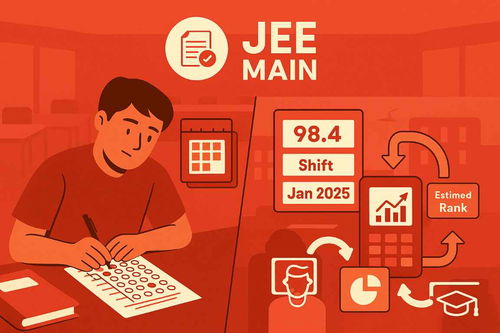
Understand the exact difference between JEE Main percentile and rank. Learn how scores are normalized across...

Understand the JEE Main scoring system to maximize your result. Learn the marking scheme, how to handle negative...

Confused about the JEE Main attempt limit? This guide clarifies how many times you can appear, the eligibility...

Wondering how many times you can appear for JEE Mains? This guide explains the total attempts allowed, session...
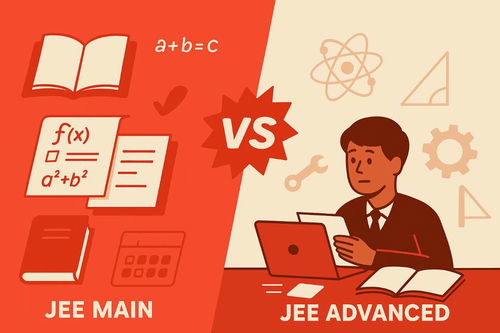
Discover the key differences between JEE Main and JEE Advanced in terms of syllabus, pattern, difficulty, and prep...

Confused about JEE Main qualification rules? This blog gives you a detailed checklist of eligibility criteria,...

Explore this simple, step‑by‑step guide to the JEE Main counselling process. Learn how to register, fill choices,...

Curious about how many times SC students can attempt JEE Main? This complete guide covers JEE Mains attempt rules,...

Want to score 200+ in JEE Main? This practical guide gives you proven tips, subject-wise strategies, mock test...

Wondering how the JEE Main exam is structured? This complete guide breaks down the official JEE Main exam pattern...
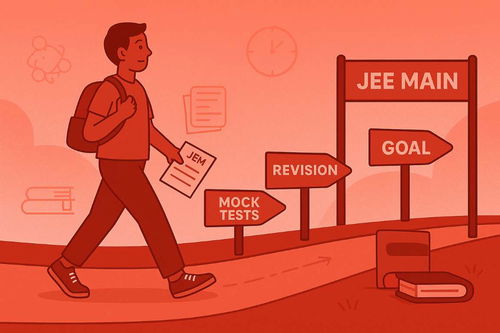
Learn how to crack JEE Main on your first attempt with proven strategies. This guide covers planning, conceptual...

Learn how many JEE Main attempts you can take after Class 12. This guide covers eligibility, attempt limits, subject...
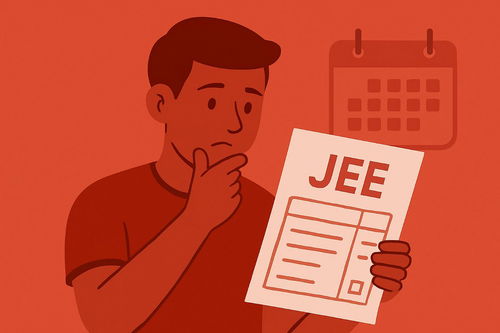
Learn about the JEE Main age limit requirement and key eligibility rules. Understand the attempt policy, Class 12...

Discover the most important topics for the JEE Main exam in Physics, Chemistry, and Mathematics. Learn subject-wise...

Get a subject-wise preparation strategy for JEE Main step-by-step using smart tips and trusted resources from AllRounder.ai.

Looking to score high in JEE Main 2026? Discover expert preparation tips on creating smart study plans, mastering...

Confused about JEE Mains eligibility? This detailed guide explains JEE Mains eligibility criteria including...
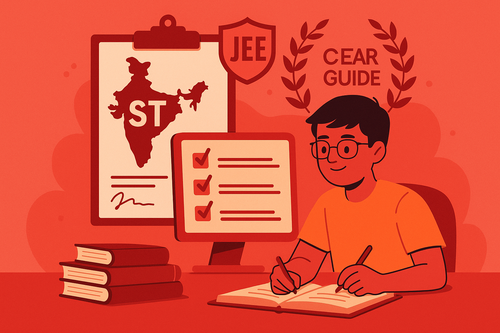
Confused about JEE Main Attempts for ST Category? This detailed guide covers attempt limits, age relaxations,...
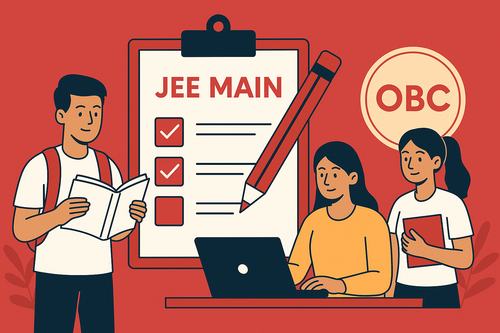
Wondering how many times OBC candidates can appear for JEE Mains? This detailed guide explains JEE Main Attempts for...

Dropping a year for JEE Mains? This in-depth strategy guide helps droppers optimise their JEE Main attempts with...
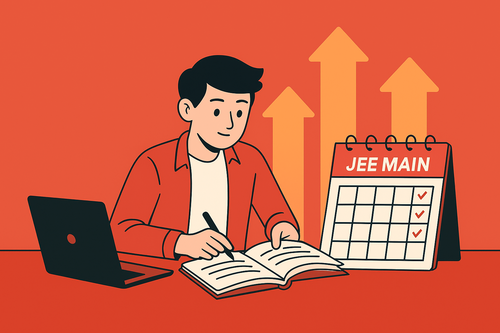
Confused about how many times you can appear for JEE Main? This guide explains the number of JEE attempts, session...
Resources
-
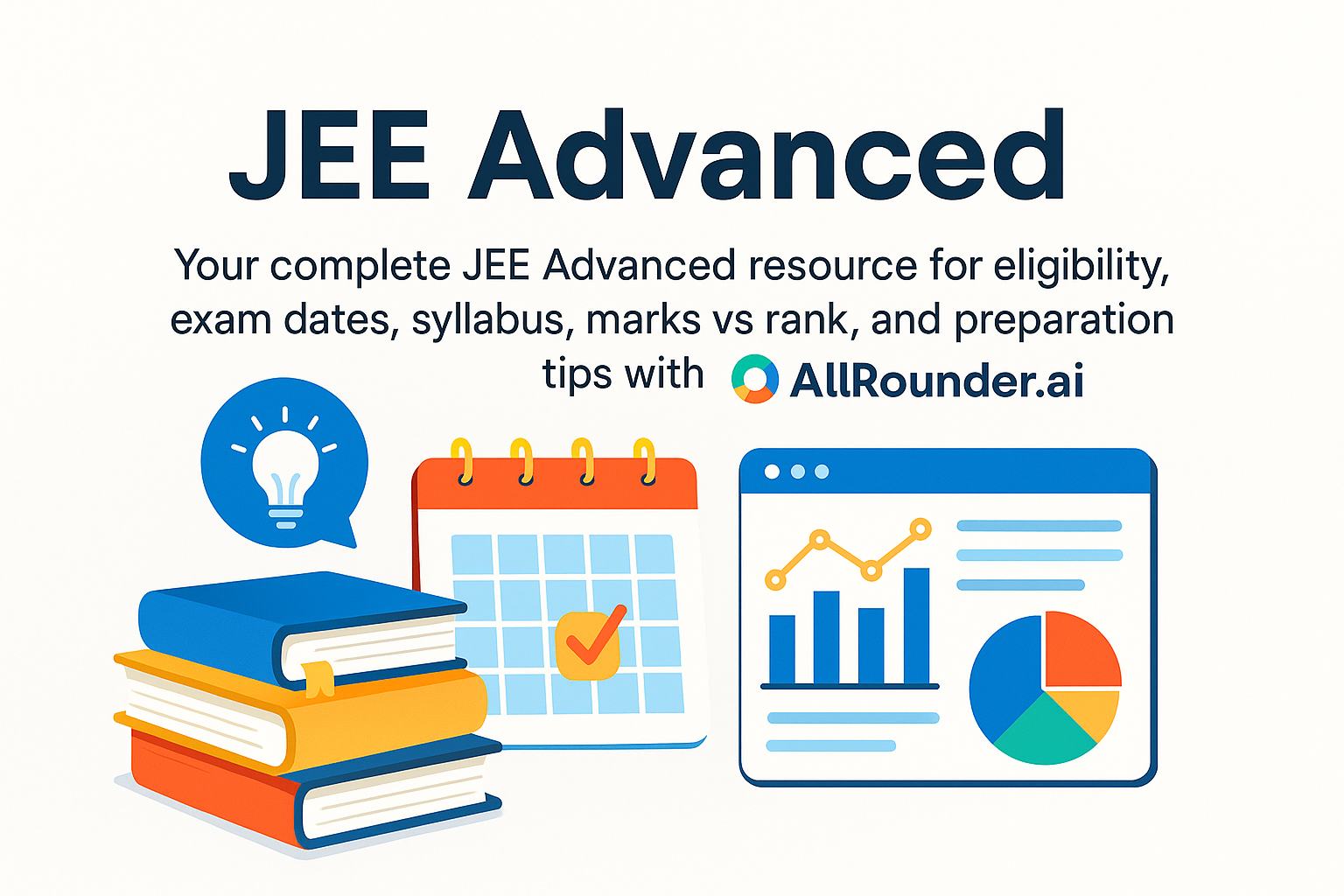
Your complete JEE Advanced resource for eligibility, exam dates, syllabus, marks vs rank, and...
-
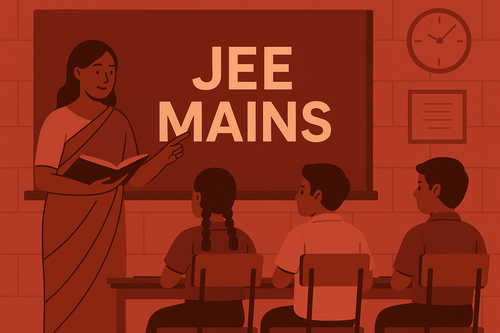
Understand the entire JEE Main process, from application and eligibility rules to the exam...
-

Explore the IB Board – a global curriculum emphasizing holistic, student-centered learning...
-

Learn about CBSE – India’s national school board offering a standardized curriculum, NCERT...
-

Explore everything about the ICSE board – its curriculum, subjects, exam format, and academic...
